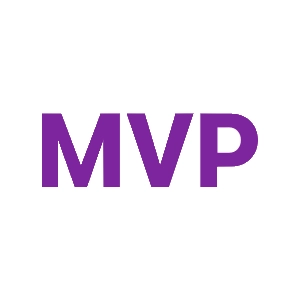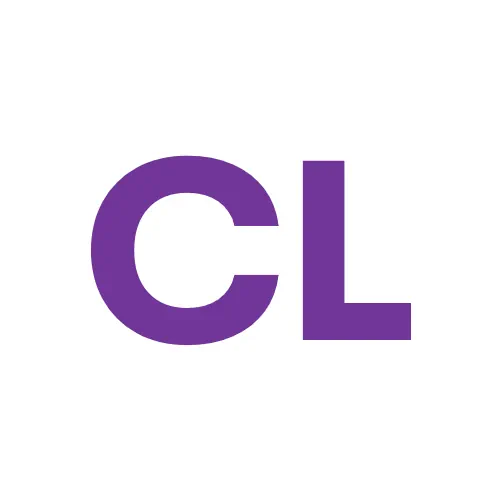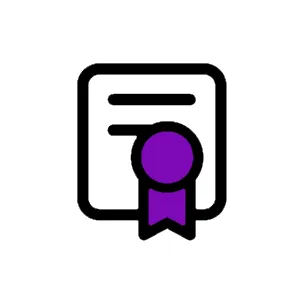Is it possible to have a domino's alias for a specific language in my channel, similar to what was available in xperience 13? So the default url language would be e.g. domain.com, but to display the French language it would be domain.fr?
Domain alias for language site
Answers
No, Xperience by Kentico only supports language path prefix localization and there is no built-in way to limit requests to pages in specific languages for specific channels (except by not publishing those URLs).
You could use multiple website channels (one subdomain for each language) but you would still need the path prefix in the URL for each subdomain to retrieve the correct language culture.
That's a shame ... that seems really limiting if you're a global company with multiple languages/territories to cater for. Is this sometbing thst will be looked at in the future, as it prevents my company from moving onto XBK.
You can create separate website channels and use completely different domains for these channels. If you need to share content between them you can do this through the Content Hub. So, you aren't blocked as this is still an option.
This might be the best approach if the content is completely different between the different localized sites.
Just to clarify, if you want you can specify a different primary language for each website channel. This means your URLs would not need to be prefixed for each separate website channel catering a different language. But if English was the "default" (fallback) for all website channels for unlocalized content then you would have the language prefix for localized content across all of them.
From the docs:
- Primary language – a language configured in the Languages application. In multilingual content, the primary language is not displayed in URLs, as opposed to other languages. For example: If the primary language is set to English, and content is also in French, the URLs are in the format:
~/pagefor English~/fr-fr/pagefor French
So, if you had a subscription with 4 website channels you could use a separate domain (or subdomain) for each and configure a different primary language for each. There would still be a single default language for all non-channel (Content Hub) content, but you could get the experience you wanted out of your website channels.
This does require that each website channel manages its own pages/tree/etc...- Primary language – a language configured in the Languages application. In multilingual content, the primary language is not displayed in URLs, as opposed to other languages. For example: If the primary language is set to English, and content is also in French, the URLs are in the format:
It's an SEO best practice to use paths to separate language variants of the same content for a website vs separate domains.
When considering how to design localization in Xperience by Kentico we received feedback from a large number of customers and partners. Their feedback led us to the solution we're using, so it's used effectively by global companies with multiple languages and territories.
Hi Sean,
If I could, I would like to extend onto this question as it seems relevant.
We are at the start of migrating a site from Kentico11 to Xperience by Kentico and in Kentico11 our URLs looked like this:
/name-of-venue (for nl-NL - Dutch. Our default culture. Served / enforced over www.our-domain.nl)
/en/name-of-venue-in-english (for en-GB - English. Our second culture. Served / enforced over www.our-domain.com)
/de/name-of-venue-in-german (for de-DE - German. Our second culture. Served / enforced over www.our-domain.de)
We placed these in the DocumentUrlPath part of the page.
While reading this entry on the roadmap from 2022 I would assume our scenario is supported:
'and configure their URLs to use human codes instead of just ..'. I would imagine I can set my 'human codes' to e.g. 'en' and that would pre-fix the slugs for my English pages with /en/. Alas.. I can't seem to find this feature.
Am I missing something perhaps? Or would we achieve this functionality? We don't want separate channels, we're serving 'the same site' simply translated into various languages, served over multiple domains.
Really looking forward to your reply, and thank you for any insights.
I think all the information you are looking for is in the documentation. I had difficulty typing the right terms in the search to get the result I knew was in the docs, but I then asked the AI chatbot which gave me the answer immediately 😉.
- For pages in a non-primary language, the language’s Code name is inserted into the URL path after the site’s root (‘/’).
- For example, if English is set as the primary language of the website channel, the URLs of pages in Spanish will be in the
~/es/pageformat.- Vanity URLs of pages in a non-primary language DO NOT include the language’s Code name.
- Set the code name of the language in the Languages application in the Xperience administration. This can be any valid code name (ex: no spaces).
- Translate a webpage to that language.
- Assuming it's not the primary language of the website channel (configured in the Channel Management application), you'll see a URL with the prefix.
We're in the same situation - we have a client on Kentico 12 using subdomain-based language routing (e.g., en-gb.example.com, de.example.com) who wants to upgrade to Xperience by Kentico but can't because of this limitation.
Changing the URL structure to path-based prefixes isn't viable due to the SEO impact across thousands of pages in multiple languages.
I've looked at the XbyK source code and the key interfaces that handle language-from-URL detection (IWebPageUrlDataContextExtractor) and URL path generation (IWebPageUrlPathBuilder) are both internal, so there's no way to override this behaviour via RegisterImplementation either.
I've submitted this as a feature request on the roadmap, I would be grateful if others affected could submit it too. This needs to be seriously considered for the roadmap.
Although untested for exactly what you're looking for, if you put a middleware pipeline before Xperience touches the route, you can adjust the Request Path and Language to 'fit' something that Xperience will render.
// NOTE: you'll need to make sure that the request is for a PAGE and not a resource like a js or css file, that's up to you.
if (context.Request.Host.HasValue
&& context.Request.Path.HasValue
&& context.Request.Host.Value.EndsWith(".fr")) {
context.Request.Host = "domain.com"; // change domain
context.Request.Path = $"/fr{context.Request.Path.Value}"; // add /fr to the path so it finds the right doc
context.Request.RouteValues.TryAdd("kxpLanguage", "fr"); // set request language to french
}
await _next(context);
What Trevor posted was part of how we made it work on one of our projects which has 6 cultures, and 5 of them were on one domain (with the default on the root), and 1 on a separate domain. To further complicate things, the site was also deployed to the SaaS environment. To be frank, it wasn't easy to figure out, and how we did it is easy to break.
At a high level, below is what we had to do:
Setup a bunch of "domain-hostname" binding rules in appsettings, something like
"{SiteCodename}": { "LanguageDomains": { "en": { "isRoot": true, "domains": "localhost:10544", "primaryDomain": "localhost:10544" }, "au": { "isRoot": false, "domains": "localhost:10544", "primaryDomain": "localhost:10544" }, "gb": { "isRoot": true, "domains": "localhost:10545", "primaryDomain": "localhost:10545" } } }Add middleware registered before
app.UseKentico()(but afterapp.UseStaticFiles())For requests that aren’t language-prefixed, the middleware checks config which should be applied, and updates
context.Request.Pathwith the language associated with that hostname.This allowed Kentico to process the request with the expected language.
Middleware registered after
app.UseKentico()For some reason Kentico overrides the request host value, so we needed to store the original
context.Request.Host.Valuevalue usingContext.Itemswhich is then used by subsequent logic.Also enforces redirect to the root domain if required.
Wrapper for
IPreferredLanguageRetrieverEnsure we use this instead of the built-in
IPreferredLanguageRetrieverHas some logic to return the language based on domain-language binding rules
Falls back to using
IPreferredLanguageRetriever(behaving normally) if no processing required
Wrapper for
IWebPageUrlRetrieverEnsure we use this instead of the built-in
IWebPageUrlRetrieverHas some logic to process generating web page urls based on the language it was requested for. For example, if we need to generate a UK URL for "about us" page, it will return
{uk-domain}/about-usinstead of{channel-domain}/uk/about-usFalls back to using
IWebPageUrlRetriever(behaving normally) if no processing required
Ensure that all this processing logic was ignored or skipped on certain (especially Kentico) routes, so it doesn't interfere with Kentico functionality, for example
/cmsctx/,/getmedia/, etc.
I think those were the key pieces, and it was a while ago now. The trick was making sure we could emulate alot of this behaviour locally, and spending alot of time trying to understand how Kentico processes context before and after app.UseKentico().
Important thing to note, make sure you are set up for serving a channel on multiple domains especially on your local environment.
This was over a year ago, and now you can use decorator pattern for decorating IWebPageUrlRetriever (and maybe IPreferredLanguageRetriever but I've not tried it). The benefit of decorating IWebPageUrlRetriever instead of wrapping it, will ensure when CMS is generating links (i.e., on URL tab of the page), the logic will apply.
I have to note though, the above was pretty hacky, and is not that easy to maintain, but it was a problem we had to solve at the time and thought I'd share how we did it.
If you need any more info feel free to reach out.
To response this discussion, you have to login first.









